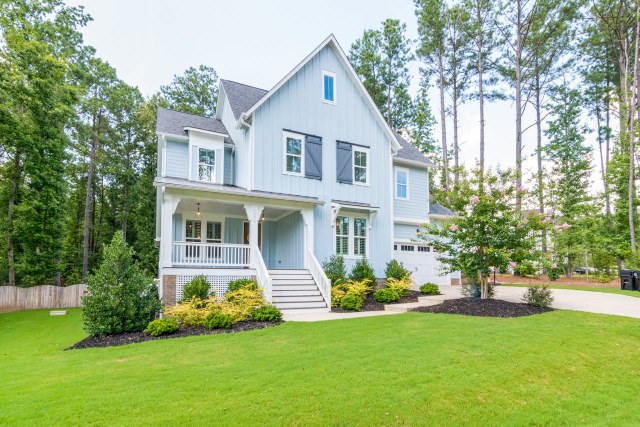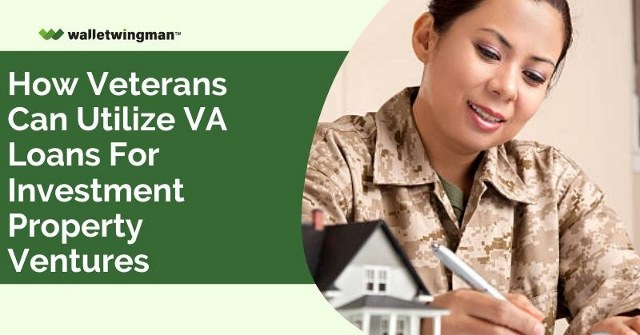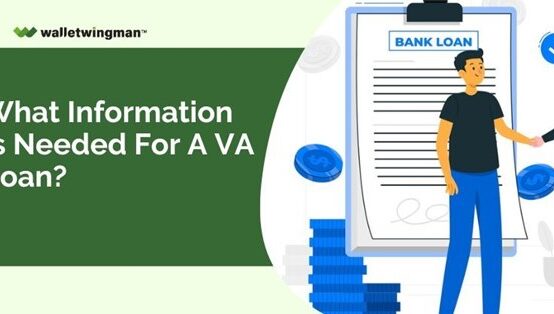When buying multiunit or multi-family properties, veterans and service members usually view them as investment opportunities. Having renters chip in toward the mortgage is an attractive option for many people.
Besides, many buyers find purchasing an investment property with the proceeds from your VA home loan appealing. But before you dive in, you should know a few things about using VA loans for investment properties.
All loan programs are open to rule changes; this includes VA, FHA, USDA, and conventional mortgages. Thus, there have been numerous changes to VA loan requirements in the past few years. So, what must you do in the face of these changing regulations to secure a VA loan for investment property ventures?
Keep reading to find out.
First, let’s address the elephant in the room.
Can You Use VA Loans For Investment Properties?

The bright side of the proverbial VA loan coin is that you can use the funds of your VA home loan to purchase a duplex in addition to a triplex or a four-plex. The unit in question must be your principal residence, and you aren’t free to use the acquired property solely for rental or investment purposes.
There are fewer rules on VA loans compared to regular loans, so many people who want to borrow money ask if real estate buyers can use VA loans. Assuming you met all requirements, a VA loan could be an option for an investment property in certain situations.
First Rule: Enlistment
The borrower’s status as a Veteran or active duty military member determines whether they are eligible for a VA loan. Members of the National Guard and Reserve, wives of Veterans, and those who have been either killed in battle, captured, or gone missing are all eligible for VA loans.
Second Rule: Permanent Residence

To qualify for a VA loan, you must live in the property as your main residence. These are the VA loan occupancy requirements. Borrowers can “house hack” by renting out a portion of their primary residence, a second unit in a multifamily building, or even an unoccupied space in a single-family home.
Third Rule: Properties with one to four units
You can use a VA loan to buy a single-family house or a multifamily building with two, three, or four units. Additionally, a single-family residence that accommodates a distinct rental unit on the same property, such as a detached garage turned into a studio apartment, may be eligible for VA financing.
Are commercial properties eligible for VA loans?

No. The occupancy restrictions are one of the reasons you can’t purchase commercial properties with a VA loan. The goal of this financing program is to assist veterans in buying permanent residences.
Hence, there is no way to leverage the financial advantages of your home loan as a substitute for what is effectively a business loan. So, purchasing homes for non-residential purposes will not work. Rest assured that, as stated earlier, your VA loan can help you buy a multi-unit residence. You can live in one apartment and give out the rest to renters.
Mixed-Use Real Estate and VA Funding
A structure with separate residential and commercial zones is a mixed-use property. For Veterans, these kinds of properties can be highly beneficial. However, it’s crucial to remember that the commercial area cannot take up more than 25% of the overall square footage. The dimensions of these properties are ultimately regulated by the Minimum Property Requirements established by the VA.
Like other multi-unit assets, the maximum number of units permitted in the mixed-use space is four. Additionally, the VA will require that the space has a minimum ongoing economic life of 30 years; this means the property must remain residential throughout the loan term.
Criteria for eligibility to obtain a VA loan
The borrower must get a Certificate of Eligibility (COE) before applying for VA home loans. This document verifies the borrower’s qualification for a VA loan according to their duty status and service history.
The following are eligible borrowers for VA loans:
- Armed forces veterans
- Survivor of a military spouse who lost their life while serving
- Beloved one of a service member who is either imprisoned or has gone missing in action
- Active or past members of the National Guard or Reserve
- Present or a never-activated former member of the National Guard or Reserve
- Each Veteran and current duty service member has different service requirements based on when they served. An average veteran will have served anywhere from ninety days to twenty-four consecutive months, with certain discharges due to service-connected disabilities resulting in shorter terms of service.
There is a chart on the Department of Veterans Affairs website that details the COE service requirements for National Guard and Reserve members, as well as for veterans and current duty service members.
Using the Projected Rental Revenue For VA Loan Approval

To determine if your expected rental income can enable you to qualify for a loan, consult a loan officer if you plan to purchase a multiunit property and rent out the unoccupied apartments.
In this case, your landlord’s experience and other relevant factors will play a role; the lender’s approval or denial will be contingent on these factors, in addition to the lender’s requirements and state law. Sometimes it’s possible, sometimes it’s not, but it doesn’t hurt to ask.
This is an excellent idea since it will make qualifying for the VA mortgage loan much simpler if you manage to convince the lender to consider the potential rental income.
For instance, in the case of a multifamily property with a monthly mortgage payment of $2,000, the ability to deduct $1,000 in rental income would reduce the monthly payment qualification required to $1,000.
Summary
VA loan programs are usually only for people who want to buy their own homes, but there are a few situations where they finance other property types.
VA financing may be available for single-family homes with a distinct rental unit, or a borrower may hack a house by letting out a spare bedroom. A VA land loan may be extended to small multifamily properties consisting of two to four units on the condition that at least one of the units remains the borrower’s principal residence for at least one year.
Leveraging a VA loan for investment property ventures can benefit an active duty service member by helping them create a rental property portfolio while fulfilling their obligations.


 How to Buy a Condo Unit with a VA Mortgage Loan
How to Buy a Condo Unit with a VA Mortgage Loan  How Credit Scores Affect Mortgage Rates on a VA Loan
How Credit Scores Affect Mortgage Rates on a VA Loan  How Much Can I Borrow When Using a VA Loan to Buy a House?
How Much Can I Borrow When Using a VA Loan to Buy a House?  The Pros and Cons of 15-Year vs 30-year VA loans
The Pros and Cons of 15-Year vs 30-year VA loans  10 Important Quotes from the Official VA Loan Buyer’s Guide
10 Important Quotes from the Official VA Loan Buyer’s Guide  What Information Is Needed for a VA Loan?
What Information Is Needed for a VA Loan? 